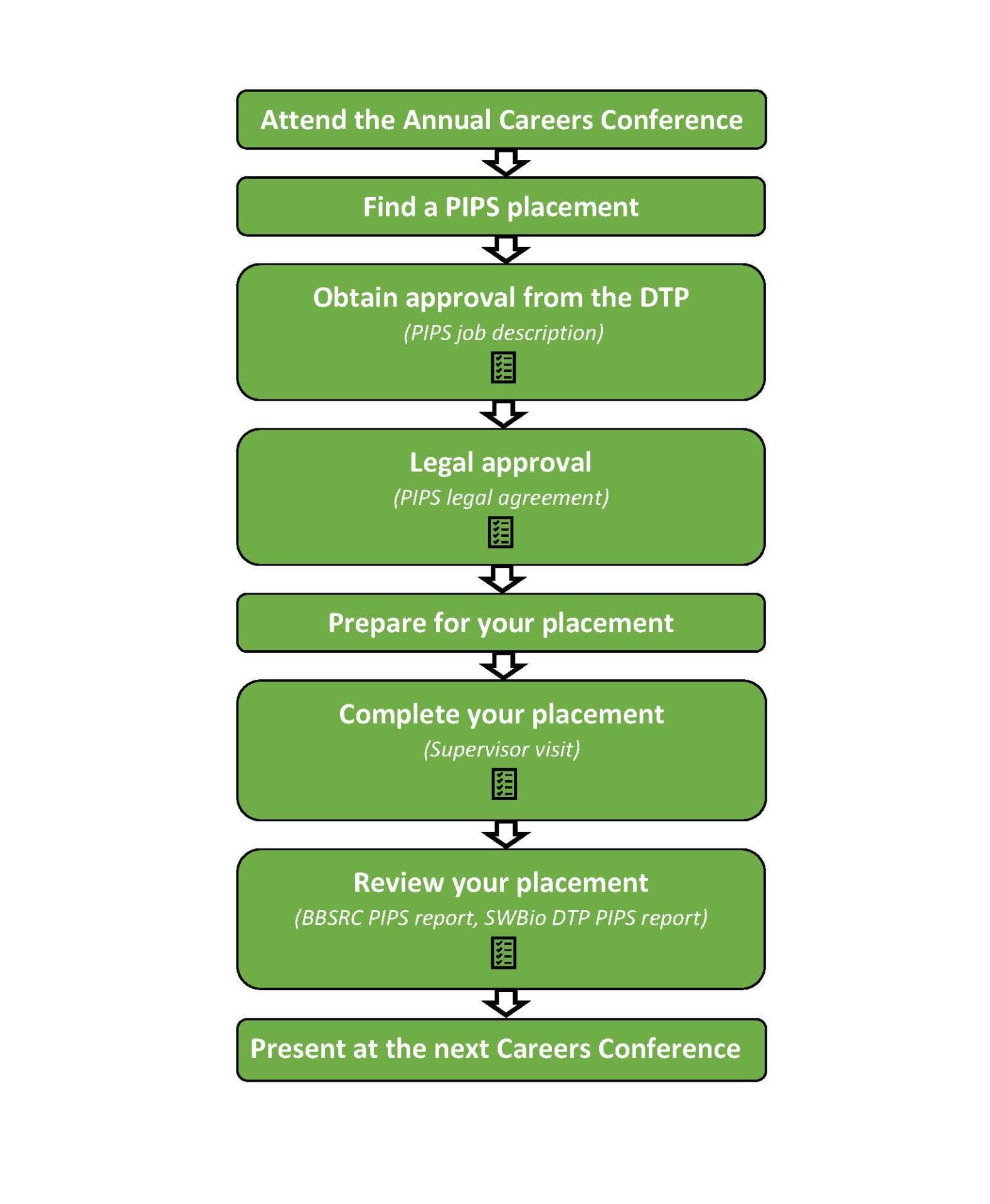Please read this before starting to plan your placement
Although we can offer guidance, finding your PIPS placement is a student-led process. This will give you valuable experience when finding work in your future career.
Important things to take into account:
When
- Undertake your PIPS placement at a suitable time during the 2nd or 3rd year of your PhD. You will need to formally complete your taught first year before going on your PIPS (marks will be ratified end of September of your first year).
- Your placement must last 60 days in duration. University/PIPS organisation closure days and SWBio DTP cohort activities are included in these 60 days.
- Placements can be full or part-time but student experience suggests that you will get most out of your PIPS if it is full-time. If you are studying part-time, the duration should be calculated on a pro-rata basis.
- It is expected that Annual Progress Monitoring (APM) takes precedence over the placement, therefore, the APM submission deadlines and meetings should be taken into account when deciding on dates for the placement. If it is unavoidable that the APM submission deadline coincides with the placement, it is normally expected that the required work is submitted prior to starting the placement or during the placement by the original deadline. If the APM meeting coincides with the placement, it is the student's responsibility to alert their postgraduate administrator in a timely manner to discuss further.
What
- Your placement must not be directly related to your PhD project. PIPS are intended to help you understand how your research and professional skills can be used in a more broadly relevant context. Research roles in academia are not appropriate, even in an area unrelated to your PhD project.
- Your placement should provide experience at a level appropriate for a postgraduate student. Placements should be projects that are well planned and managed.
How
- There are a few pieces of paperwork that need to be completed at different stages of the PIPS process (placement description, legal agreement, BBSRC and SWBio DTP PIPS reports – refer to sections below for these documents). It can take up to 3 months to have your placement description approved and legal agreement signed by all parties, so please allow extra time for this paperwork to be completed.
- You can carry out your placement at two different organisations as long as the time at both organisations totals 3 months or 60 days.
Salary
- You are not allowed to receive a salary during your placement. This goes against the funder's terms and conditions. Instead, you will receive your stipend throughout and either your PIPS budget or your PIPS organisation can provide support for accommodation/travel.
As you will remain a student during your PIPS placement, your stipend will continue as normal. There is also a 'fieldwork budget' available in addition to your student RTSG, to cover travel and accommodation costs associated with your PIPS. Your PIPS organisation may help to subsidise these costs. All costs directly incurred as part of the placement project should be met by the PIPS organisation.
Your fieldwork budget is as follows:
- £1,000 for your PIPS placement – this covers costs associated with accommodation and travel
- £920 for fieldwork – this covers costs associated with fieldwork/conferences.
You have flexibility within your fieldwork budget, so if you underspend in your PIPS budget, you will have extra money to spend on fieldwork/conferences and vice versa. If you exceed your fieldwork budget, you can use your RTSG to cover these costs, but this must be in consultation with your supervisor.
To cover expense costs related to your PIPS placement, please label the activity very clearly as 'fieldwork budget'. If you need any advice or guidance related to accessing your fieldwork budget, please contact your local institutional finance team.

Planning your placement


 Read about the past experiences of other
Read about the past experiences of other 

